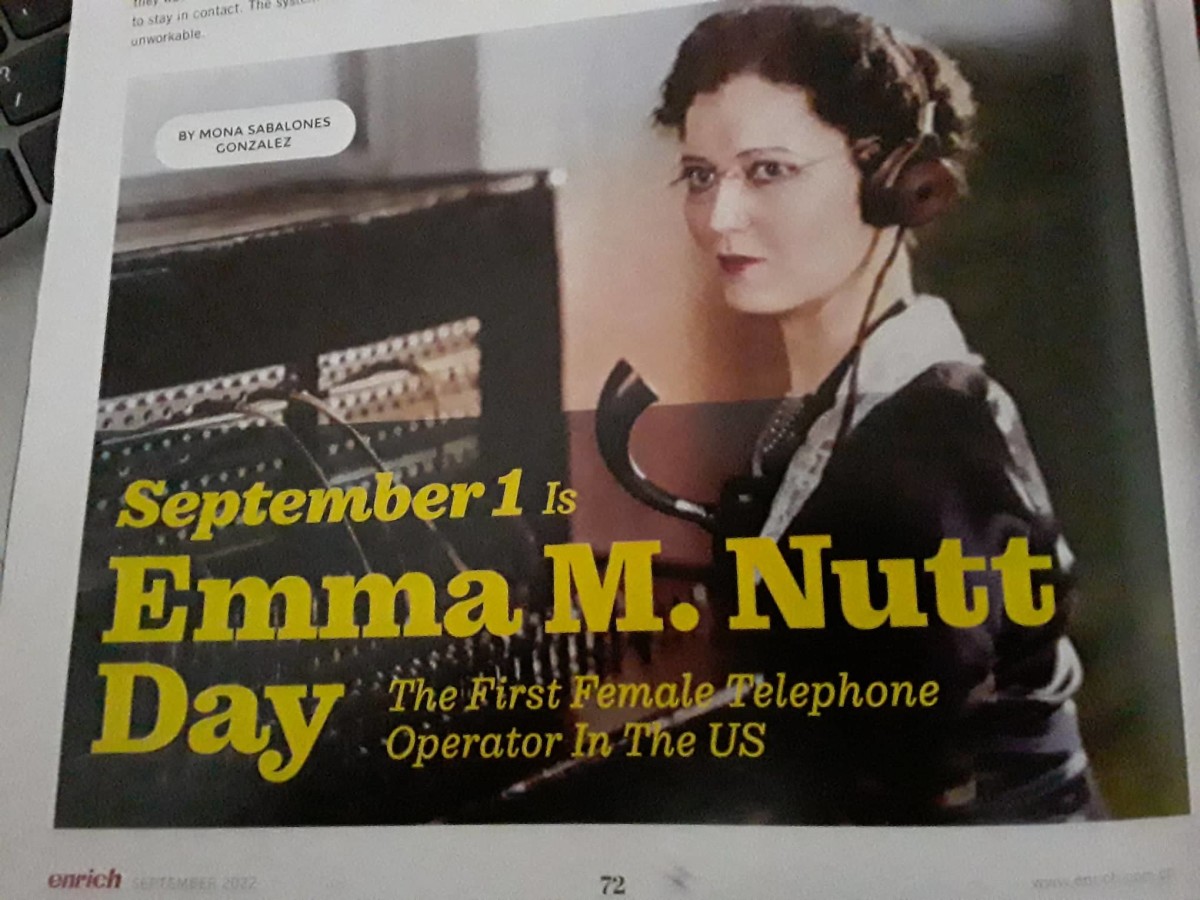Customer Service – How do you get it right?
Introduction
It is often said, especially by Americans, that we just don’t ‘get’ customer service in the UK, and I think that there is a lot of truth in that. It’s hard to pin down exactly why that is, but there is definitely a cultural angle to it. Providing excellent service to a customer is, I think, often equated to being subservient, and subservience doesn’t fit well with people in the UK, being seen as old-fashioned, something which happened in the 19th century and earlier. But this is wrong. Excellent customer service is not about being subservient, it is about taking pleasure from making someone else’s life more pleasurable or easier.
That attitude is often present in small rural communities in the UK, where everyone knows each other, but doesn’t seem to extend to people’s dealings with strangers, or to happen much in urban areas. There are a number of individuals for whom the “customer service” approach comes naturally – but it is far from common.
An American example of getting it wrong!
The Americans are often said to be excellent at customer service, but it is about more than just smiling (although that is a great start) and saying “Have a nice day” (which can be too over the top, and annoying, especially if it sounds like they don’t really mean it), and Americans, it should be remembered, don’t always get it right. There is a relatively current case in point going around the internet at the time of me writing this, concerning United Airlines and damage allegedly done to a guitar belonging to one of their passengers, which was put in the hold. Here are the details…………
A musician named Dave Carroll recently had difficulty with United Airlines.
United apparently damaged his treasured $3500 Taylor guitar during a flight.
Dave spent over 9 months trying to get United to pay for damages caused by baggage handlers to his custom Taylor. During his final exchange with the United Customer Relations Manager, he stated that he was left with no choice other than to create a music video exposing their lack of co-operation.
The manager responded, “Good luck with that one, pal,” so he posted a retaliatory video on You Tube, which has since received nearly 11 million hits (at the time of writing).
United Airlines contacted the musician and attempted settlement in exchange for pulling the video. Naturally his response was, “Good luck with that one, pal.”
Taylor Guitars sent the musician 2 new custom guitars in appreciation for the product recognition from the video that has lead to a sharp increase in orders.
Here’s the video: http://www.youtube.com/watch?v=5YGc4zOqozo
This has generated a mass following on You Tube, and there have been two more follow-up songs from Dave Carroll, and other people making videos on You Tube pretending to be a senior manager in United Airlines berating the customer service team, and one pretending to be the response of the Customer Relations Manager who told Dave Carroll “Good luck with that one, pal.”
It all makes amusing reading, listening and watching if you have the time, but the point is a fairly simple one: Why on earth did United Airlines’ customer services not agree to compensate Dave Carroll straight away for the damage to his guitar whilst in transit notionally under their care, because he was travelling on their airliner? Maybe they thought the claim was inflated (it was a very expensive guitar), or maybe the proof as to when and how much it was damaged was not clear. There was, more than likely, the old excuse of ”It wasn’t our fault, it was the baggage handlers. We don’t employ them. You’ll have to take your claim up with the baggage handling company.” However, as one You Tube video says, the cost of running one flight of an aircraft runs into hundreds of thousands of dollars. How significant is the repair cost for one $3,500 guitar in this context? Why did they just not settle without any fuss, and then try to reclaim the money from the baggage handlers themselves, behind the scenes?
Countries who get it right
In general, the Americans do do customer service better than most, and so, in my opinion, do the Italians, Spanish and the Greeks, and it’s largely to do with a friendly, welcoming approach, and a desire to send you away happy at the end of the experience. The French, going by one or two unhappy personal experiences, are often as bad, or worse than the British. I’m not going to get into why here, and what cultural differences are driving contrasting behaviours, but it is interesting food for thought as to the variations between countries.
Customer Service in Businesses
Customer service is one of the key issues for any business, and yet it is one that is so often neglected – and I’m going to focus now on the UK experience. What does a business need in order to survive? It needs money in the bank to pay its staff and for its facilities, infrastructure and any raw materials, it needs to be able to supply a service or product that people want to buy, it needs to trade profitably, so that its income is more than its costs, it needs to close sales of its products and services, and thus it needs customers. The lack of any one of those can cause a business to fail, or not even to get started. So why do so many businesses pay so little attention to delivering excellent customer service, so as to retain its present customers, and grow new ones through word-of-mouth?
A lot of larger companies have Customer Service, or Customer Relations, departments, but frequently these are about dealing with customer complaints or customer problems after a sale, not about preventing there being any customer complaints or customer problems in the first place. The United Airlines example above is an illustration of this. Their Customer Relations department is clearly not set up with a culture of trying to ensure the best possible experience for their customers, making their customers’ lives easier or more pleasurable, otherwise their response would have been to re-imburse Dave Carroll for his guitar immediately, perhaps placing the order for the replacement guitar themselves, and ensuring the quickest possible delivery of the new guitar to an address to his choice – within hours. They would then have offered him a free return trip for his next flight, with an upgrade to First Class, and free VIP check-in. Then he might have told the world how fantastic they were, turning a disaster (the breaking of his precious guitar) into a hugely positive experience. Had he subsequently made a video about how great they were at solving a problem caused by the baggage handlers, he would have swelled the customer base of United Airlines with many new customers, who had never thought to use them before, now trying them out for the first time to see how great they really are. What a different outcome from the one that occurred!
Instead, their Customer Relations department clearly had a remit of being somewhere where disgruntled customers could be directed to to vent their anger, and then be fobbed off. This is not an uncommon remit for a customer service / relations department to have, it would seem, as we can all relate experiences of dealing with such departments and becoming immensely frustrated.
Good customer service up front
Customer service to me, is not something that happens after the event. That is part of service recovery, the other key part of service recovery being to make sure that the same thing does not go wrong again in the future. Customer service is something that happens up front, and right the way through the customer experience. It is very simply about putting yourself in the customers’ shoes, and thinking about what would make their experience as pleasurable as possible at every stage of the process of dealing with your company. Some people seem to find this hard to do, but we are all customers of many companies just in going about our everyday lives, so, with a little thought, it is easy to think how things could be so much better.
The companies that do this are always successful: think Virgin airlines, which has just introduced what they call “Rock Star” service, to try to bring elements of First Class and VIP treatment to the ordinary everyday passengers. Think Apple, who design products that don’t just look fantastic, but which are easier and more intuitive to use, and who give you a personal face to face service from experts in their stores to resolve your technical issues, in an attempt to be different from the faceless telephone “helpdesk”. Now, I’m not saying that either company is perfect, and it can often be frustrating and inconvenient to be told that you have to visit you nearest Apple store to get help, but the point is that they are continually thinking about the customer experience, and what the customer wants, rather than being internally focussed when they develop their services and products.
A personal example
I was once in a meeting to discuss how the company I was working for could maximise the profits from its key B2B customer, with whom new sales were tailing off. I was astonished to note, and highlighted to my colleagues, that three quarters of the way through the meeting, no one had once mentioned the customer, or what it was that the customer really needed in order to achieve their business aims. The whole meeting was about how our company could change its products and services to maximise profitability, and how we could improve the sales process to close more sales. We should have been discussing what it is that the customer really needs and wants to buy to achieve their business aims, and how we can ensure that we can deliver that quickly, easily and profitably.
Conclusion
Businesses of all sizes can improve their customer service. As someone who thinks about customer service a lot, I see dozens of examples every day where I think “If only they did this or that instead of what they are doing, they’d be delighting their customers and growing their business through word of mouth.” Word of mouth is the best marketing device there is. It’s far easier to get new customers through recommendations from their friends and colleagues than is is through any amount of advertising and marketing, and remember that recommendations are free. And it is excellent customer service which drives recommendations more than anything else. People will generally be prepared to pay more to get superior service, because it makes their own lives easier. Can businesses still afford, in this increasingly competitive market, to be neglecting to integrate customer service as part of their entire culture and end to end operation?








